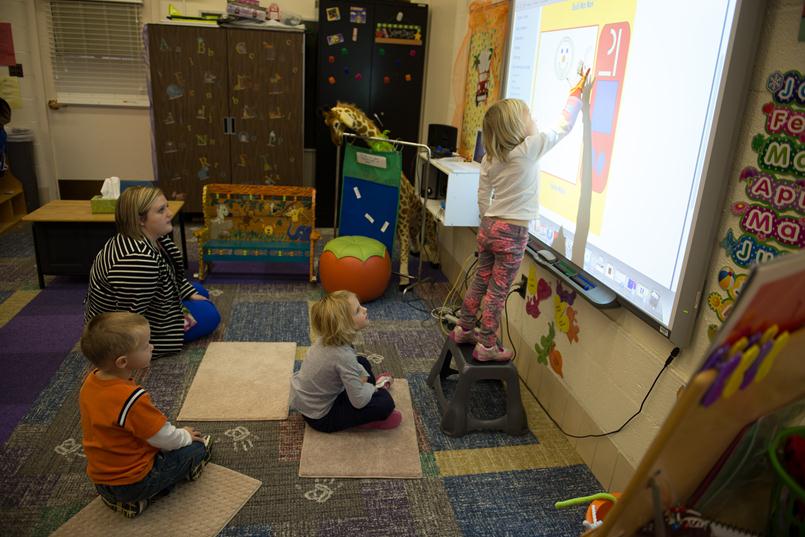The Heart of Illinois Low Incidence Association (HILIA) has developed and implemented a new Listening and Spoken Language Program, adding to the variety of services available for students with low incidence disabilities.
HILIA is a regional special education cooperative formed to promote, establish, and maintain a continuum of comprehensive services for children ages 3 through 21. University Lab Schools have been home to HILIA programs since 1999, and the programs are housed at Thomas Metcalf School.
This exceptional setting allows for comprehensive delivery of educational services where deaf educators, audiologists, speech language pathologists, and general education teachers work together utilizing research-based theories and practices. Having access to, and working in partnership with, professionals in related fields at Illinois State University provide students an optimal educational experience.
The Listening and Spoken Language Preschool is a program on the continuum of services offered by home districts for students that qualify for special education services. Placement in the Listening and Spoken Language Preschool is determined by the home district IEP team.
A Listening and Spoken Language (LSL) Preschool is an educational setting in which students with hearing loss are taught to learn primarily through listening and spoken language. Eligible students have access to spoken language through proper amplification, which may include hearing aids and/or cochlear implants. The program offers students unique experiences for small group and individualized instruction, in addition to opportunities to encounter language-rich peer interactions in a traditional preschool classroom. A challenging, research, and data-driven program includes lessons developed using the Listening and Spoken Language philosophy that targets literacy, writing, math, science, and social studies.
The goals of the LSL preschool include stressing the importance of early education, encouraging and ensuring proper utilization of assistive listening devices, increasing students’ functional skills in spoken and written English, clear speech/articulation, and effective listening skills. The program strives to increase students’ academic skills to levels commensurate with their peers so that they can be mainstreamed into general education classrooms as early as kindergarten.

